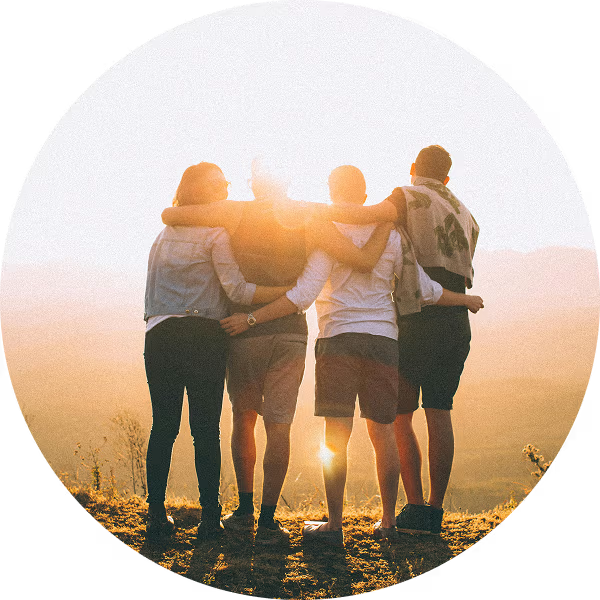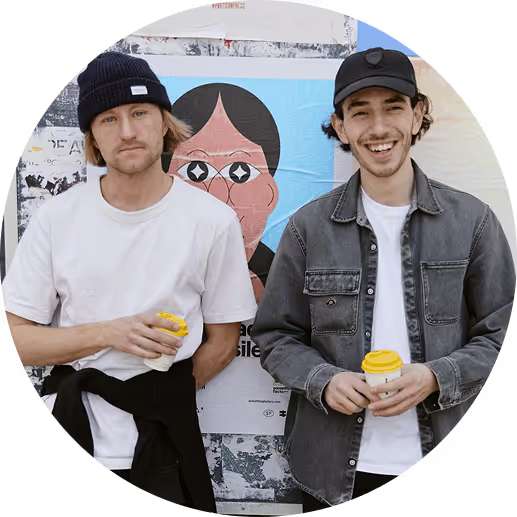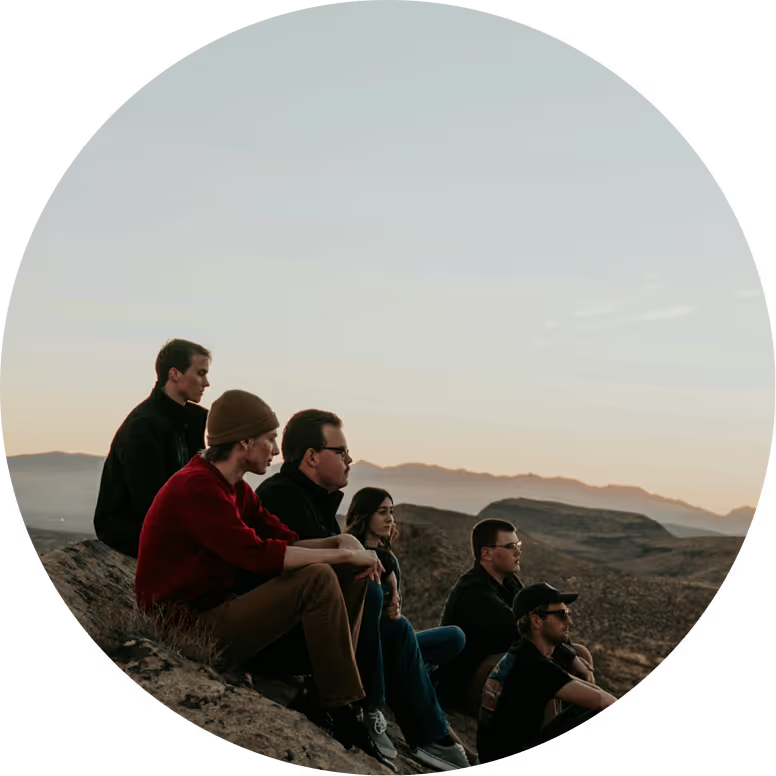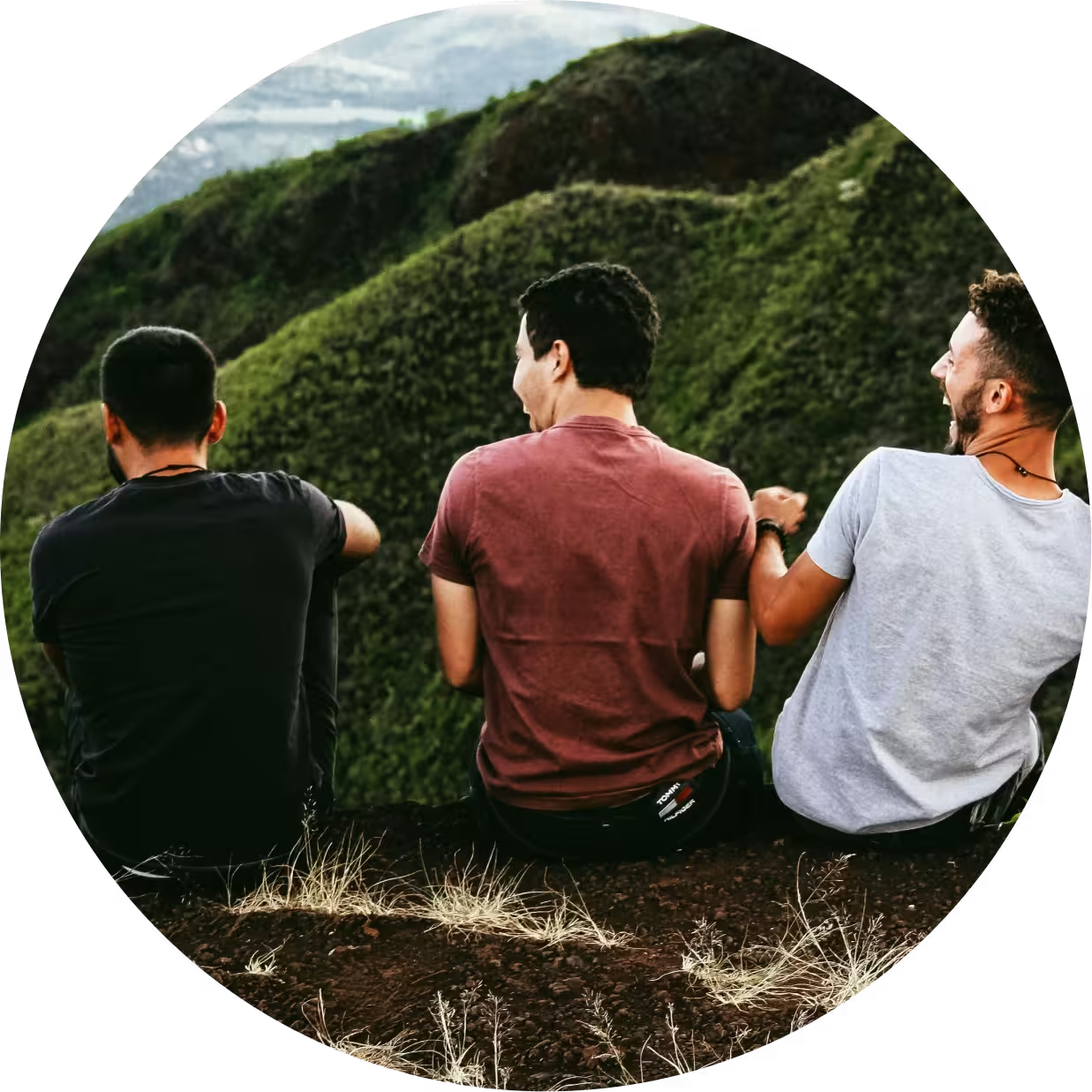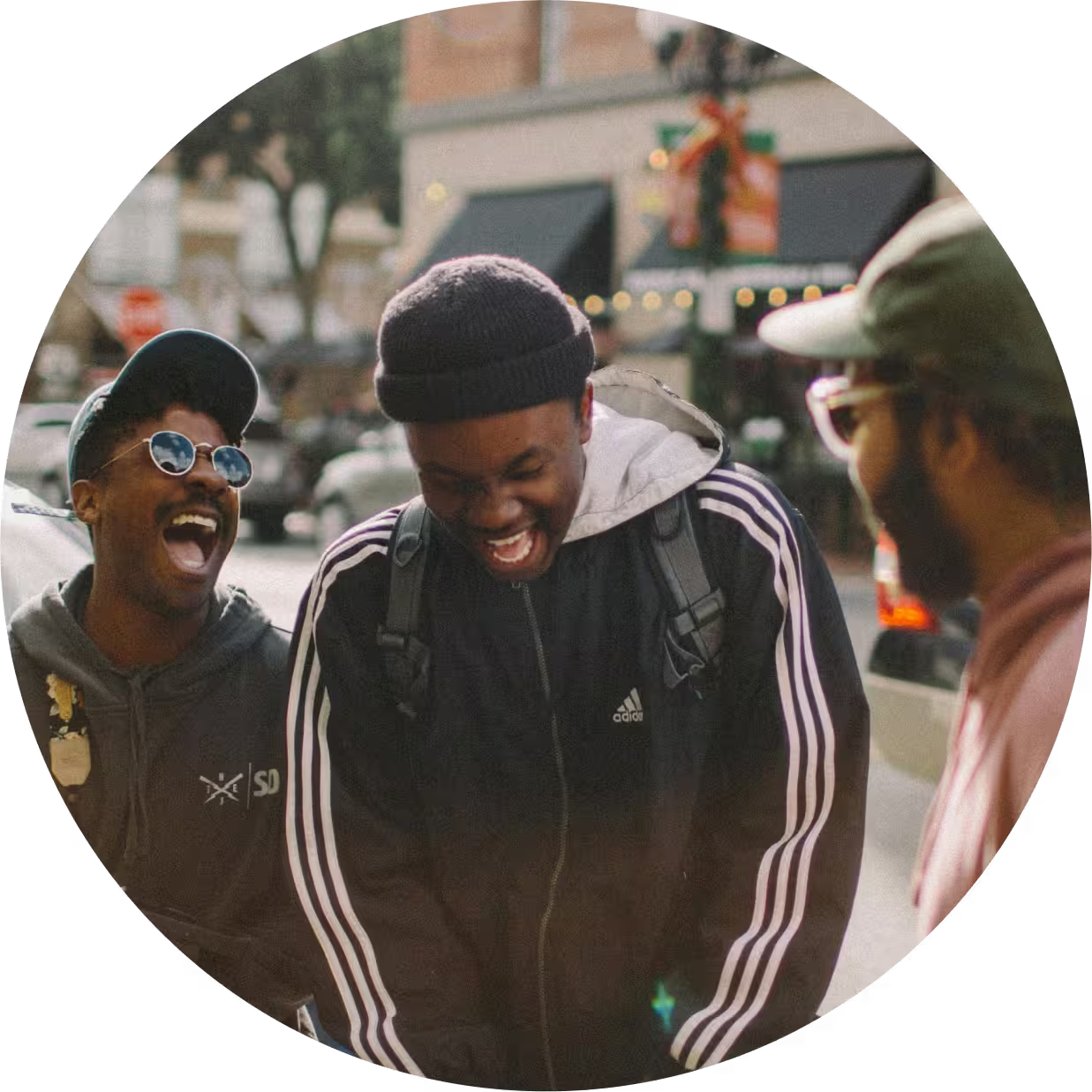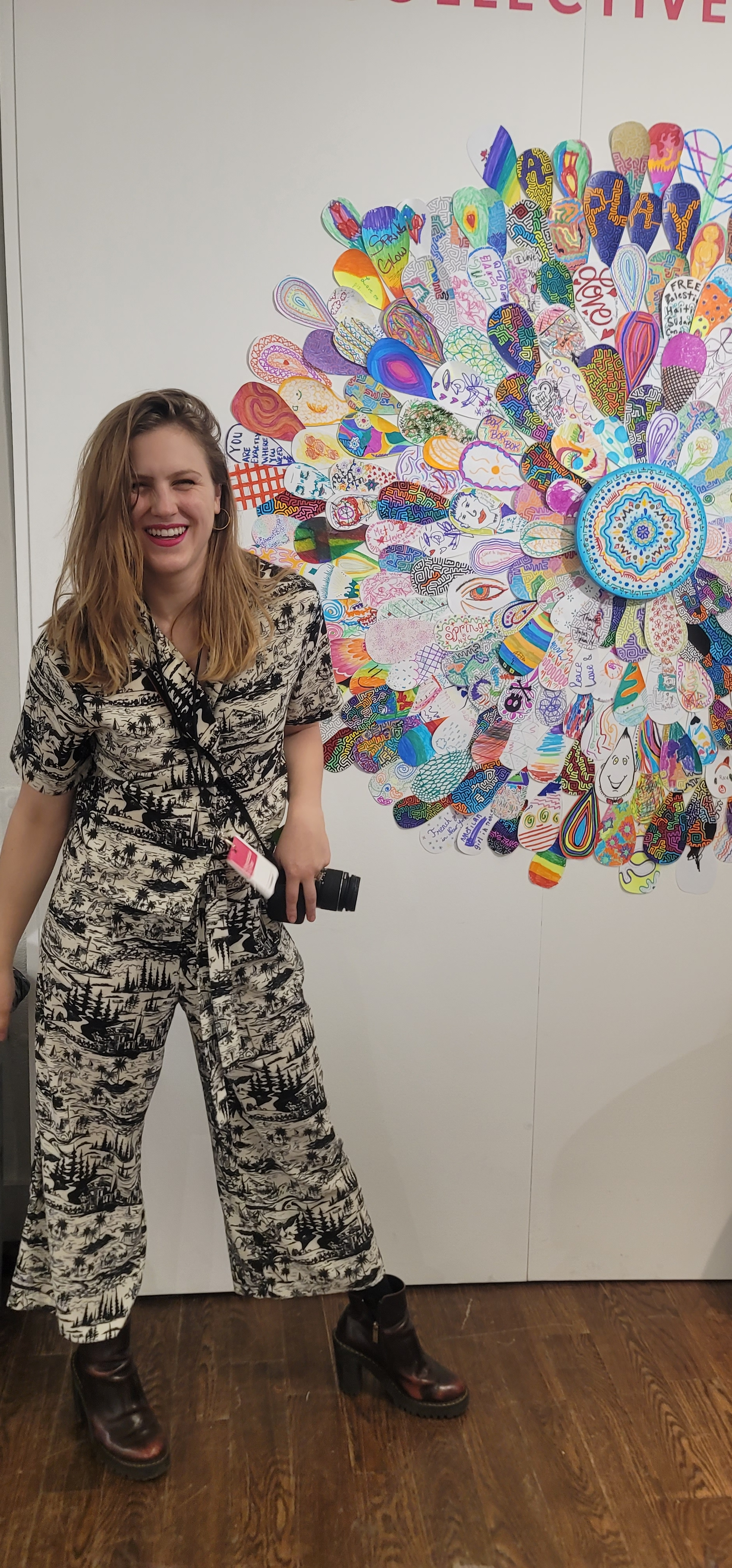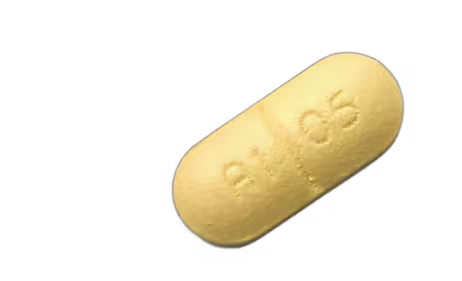

“I can't f*cking do this anymore.”
"I don't want to waste my life like this.
Trapped by these pixels for hours and hours, every single night."
It started as a harmless habit, but over time it grew to consume my life.
Quitting was so hard.
Screen time apps.
Cold showers.
Website blockers.
Exercise.
I tried it all.
The first time I felt hope was when I talked with someone who understood my struggle.

Connection is the opposite of addiction
In Greek mythology, nostos refers to the homecoming of a hero. Meet some heroes in the Nostos community.

We couldn't have done it alone.
Meet your Support System
Accountability Groups
It's easier to reach your goals when you're not on your own.
Build community and accountability with others through our weekly online accountability groups.
Check in regularly with your group to stay motivated and accountable.
Build lasting habits and keep yourself on track through weekly meetings.
Connect with others on the same journey. Share and celebrate your wins together.
Medication Support
Reduce cravings when willpower isn’t enough.
Quiet the noise of constant urges so you can focus on building your new life. FDA-approved medication that reduces the rewarding effects of addictive behaviors. Prescribed and monitored by licensed healthcare providers.

FDA-approved medication can help quiet the urge to engage with addictive behaviors.

Reduced cravings make it easier to build new habits and avoid returning to old ones.

With professional support, rebuild trust in yourself and your recovery.
Intensive Coaching
12 weeks. Small confidential groups. Real accountability. Lasting change.
Build lasting recovery skills in small, expert-led groups. Get evidence-based tools and forward-looking coaching alongside peers who fuel your momentum.
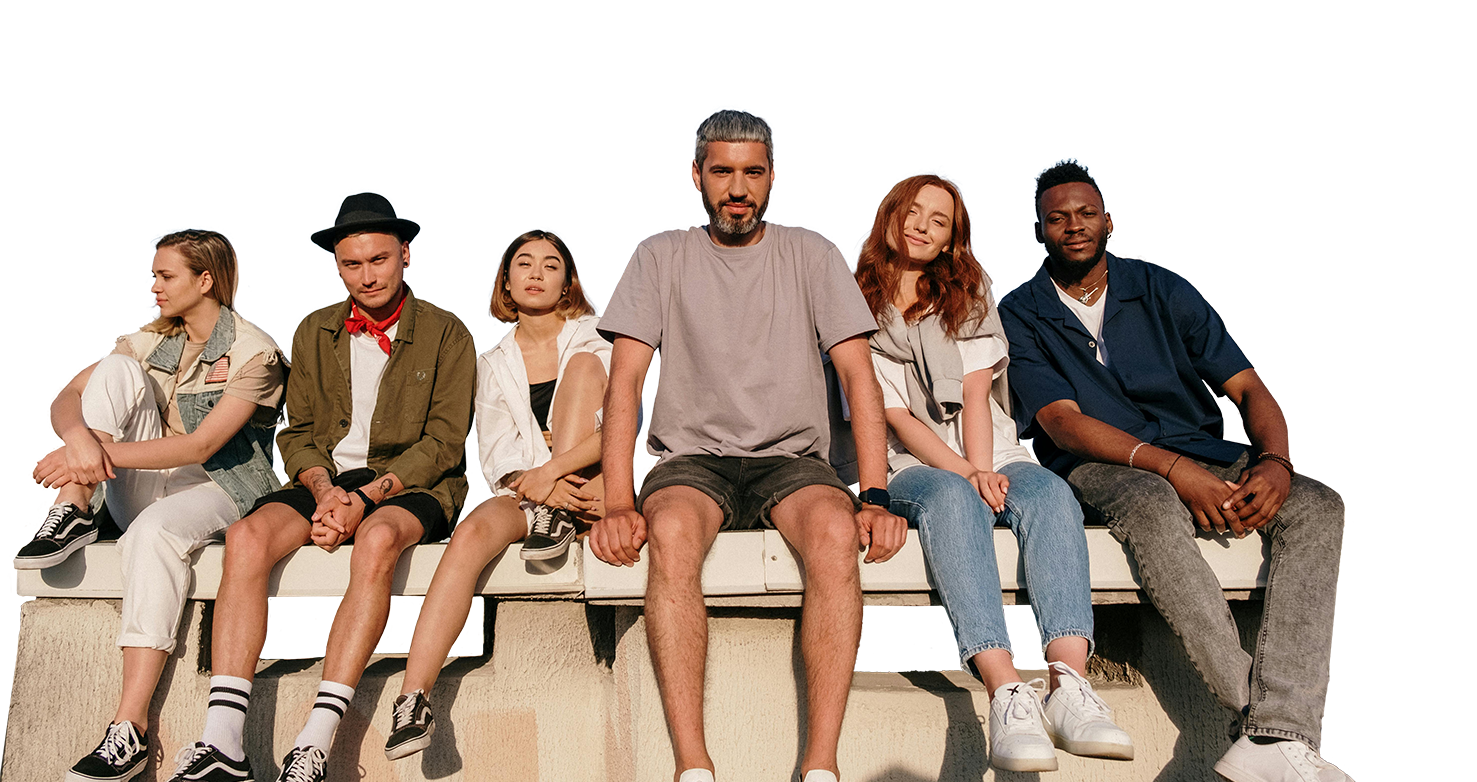
You are not alone
Millions struggle with their tech addiction in silence.
Recovery starts when we connect.
















Love for Nostos
I walked into therapy with my Nostos trigger journal in hand.
Because my patterns and stress points were already on paper, my therapist and I could dive straight into real work—our session felt twice as productive.”

It helped, just knowing that someone understood.
My Nostos group were the first people I ever told about my struggles. I remember crying and feeling like a huge weight had been lifted from my shoulders.

I thought I'd be trapped forever, and that quitting would be impossible.
Nostos helped me regain hope and find my way back to a life that’s worth living.

What to Expect
Here are the most frequently asked questions.
Our services are open to anyone age 18 or older.
Our Accountability groups are led by trained facilitators.
Professional coaching is led by licensed mental health professionals (eg. LCSW, LMHC)
Clinical support is provided by licensed physicians and clinicians.
No.
We don't believe installing another app will help you overcome a technology-based addiction. We offer programs led by real people, focused on connection, accountability, and engagement.
We offer a range of support options:
Accountability Groups: $12 / week.
Professional Coaching: $125 / week.
Clinical Support: Varies based on treatment needs and insurance coverage.
No two cases of tech addiction look alike. In fact, no two cases of any addiction look alike. Addiction never happens in isolation—it happens to a real person with goals, dreams, and a complex history. Each person's experience with addiction is unique, just as their path to recovery will be.
Tech addiction can be particularly difficult to spot because excessive tech use has become normalized in our society—even celebrated. Just look around next time you're waiting for public transit. These days, it's unusual to see someone who isn't glued to their phone.
The devil is in the details.
Generally speaking there are six main symptoms to watch out for.
- Salience
You spend a lot of time thinking about social media or planning how to use it.
- Mood Modification
You use social media to forget about personal problems or reduce feelings of anxiety, guilt, or depression.
- Tolerance
You feel an urge to use social media more and more to achieve the same pleasure you once did.
- Withdrawal
You become restless or troubled if you're prohibited from using social media.
- Conflict
You use social media so much that it has had a negative impact on your job, studies, or relationships.
- Relapse
You've tried to cut down on social media use without success.
These symptoms, developed as part of the Bergen Social Media Addiction Scale, help identify problematic social media use patterns. Answering "often" or "very often" to at least four of these criteria may indicate potential social media addiction.
Dr. Sherer, CCO, Nostos
It depends.
Our intensive group programs last for 12 weeks, and many heroes report feeling better starting Week 1. Long-term improvement can take between 6 months and 2 years, depending on your addiction severity, and also the accountability and support systems that get put into place.
We're here to help you with this.
Not yet. Our focus is delivering the highest quality addiction support at an accessible price point. Learn more about our Pricing.
